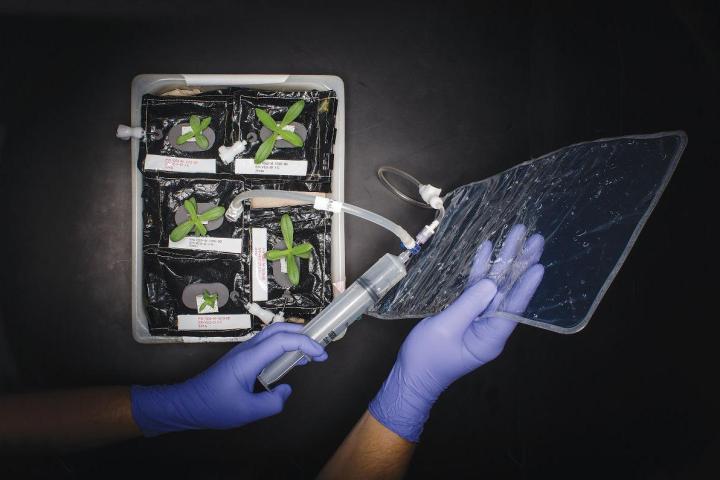
No, the experiments are not aimed at helping along any romantic liaisons that might blossom on future space expeditions, nor are there any plans to open a chain of space-based florist’s. Instead, it’s hoped the exercise will help NASA hone its plant-growing skills, with flower growth posing a far greater challenge than raising vegetables to maturity.
On Tuesday morning, some 240 miles above Earth, NASA astronaut Kjell Lindgren activated Veggie – NASA’s special plant growth system – with so-called “rooting pillows” containing Zinnia flower seeds.
It’s the first time for a flowering crop experiment to take place on the orbiting laboratory, and follows the successful cultivation of vegetables on the ISS in trials conducted over the last few years.
“Growing a flowering crop is more challenging than growing a vegetative crop such as lettuce,” said Gioia Massa, NASA Kennedy Space Center payload scientist for Veggie, adding, “Lighting and other environmental parameters are more critical.”
With help from Veggie’s water and nutrient system, as well as its red, blue and green LED lights, the Zinnias are expected to grow for about 60 days, which happens to be twice as long as the red romaine lettuce recently grown on the ISS.
Trent Smith, Veggie’s program manager at Kennedy, says the flower-growing experiment will help increase the team’s knowledge of “how plants flower in the Veggie growth system, and will enable fruiting plants like tomatoes to be grown and eaten in space using Veggie as the in-orbit garden.”
NASA views this kind of research as essential if it wants to have any hope of launching lengthy manned missions into deep space, as it’d of course be impossible to take enough food from Earth.
Veggie team member Dr. Giola Massa said recently, “The farther and longer humans go away from Earth, the greater the need to be able to grow plants for food, atmosphere recycling and psychological benefits,” adding that “plant systems will become important components of any long-duration exploration scenario.”


